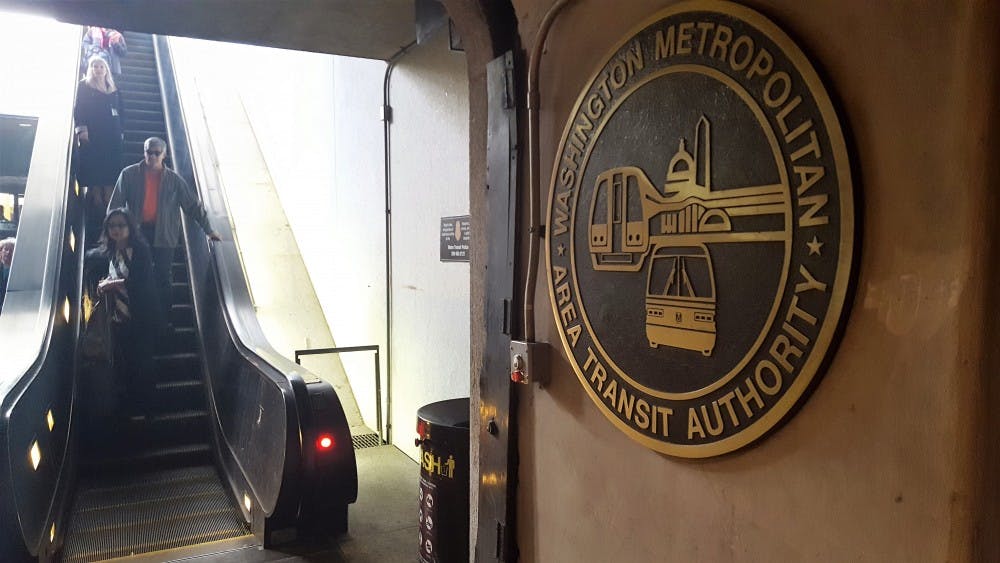Metro shortages were initially expected to last only a couple of days, but the latest update has pushed their resolution until later this month. In the meantime, American University students have had to adjust their daily commutes to the current limited schedule.
The reduced service comes after a train on the Blue Line derailed on Oct. 12, sparking an investigation by the Washington Metrorail Safety Commission. Though no one was injured in the incident, the Washington Metrorail Safety Commission forced the Metro to remove all 748 of the 7000 series rail cars citing safety concerns. It was soon revealed that Metro had been aware of defects in the wheels and axle assemblies for five years.
The removal of Metro’s newest trains has delayed operations on the Red Line from six minutes to every 15 to 20 minutes, and from 10 or 15 minutes to nearly 30 minutes on all other lines.
Andrew Ho, a senior in the Kogod School of Business, said his already-significant commute to campus is now 30 minutes longer because of the Metro shortages.
“On a typical day, I have to spend roughly 60 to 75 minutes to get to campus from my apartment,” Ho said.
Ho, who lives in Anacostia, takes the Green Line before transferring to the Red Line to arrive in Tenleytown. Ho said that because of the shortages, he now has to wait at least 20 minutes for another train to arrive if he misses the first one.
“That is quite annoying and troublesome to me because back in Hong Kong, we usually have metros for every five to six minutes,” Ho said. “It’s kind of hard for me to predict how much time I need every day to get to campus.”
In a YouTube press release, Kristie Swink Benson, chief spokesperson for the Washington Metropolitan Area Transit Authority, said rail service on the Red Line sped up from every 15 minutes to 12 minutes on Nov. 8. This week, safety testing began on the 7000 series trains. Although the timeline for reduced Metro service initially extended to at least Nov. 15, WMATA is currently unable to provide a concrete timeline for when service will return to normal.
Junior Cam Makki, a student in the School of Public Affairs, said taking the Metro from his place in Navy Yard used to not be a hassle, but the shortages have added an extra layer of difficulty to his commute.
“I used to hop on [the] Metro, fall asleep on the Red Line and arrive at school,” Makki said. “Now it’s like, I really got to pay attention, I got to be awake, I got to coordinate.”
For people who rely on public transit to get to and from school or work every day, the shortages have proven to be frustrating and inconvenient.
“You really got to change your schedule until everything is fixed, which is very inconvenient for the workplace and for education,” Makki said.
He also said the shortages have forced him to wake up an hour earlier to get to classes on time.
Five weeks into the Metro shortages, D.C. Mayor Muriel Bowser teamed up with Lyft to offer every district resident a free 30-day trial of Capital Bikeshare as a form of alternative transportation.
Bowser emphasized her focus on making transportation accessible in a statement on Oct. 25.
“The service disruptions at Metro are deeply troubling for D.C. and the region. D.C. is open and we need a fully functioning transit system to get workers, students, and visitors across the city,” Bowser said in the statement.
A significantly cheaper Capital Bikeshare membership is also available to AU students who sign up with their University emails. The membership is $25, lasts one year and allows for unlimited rides under 30 minutes.





